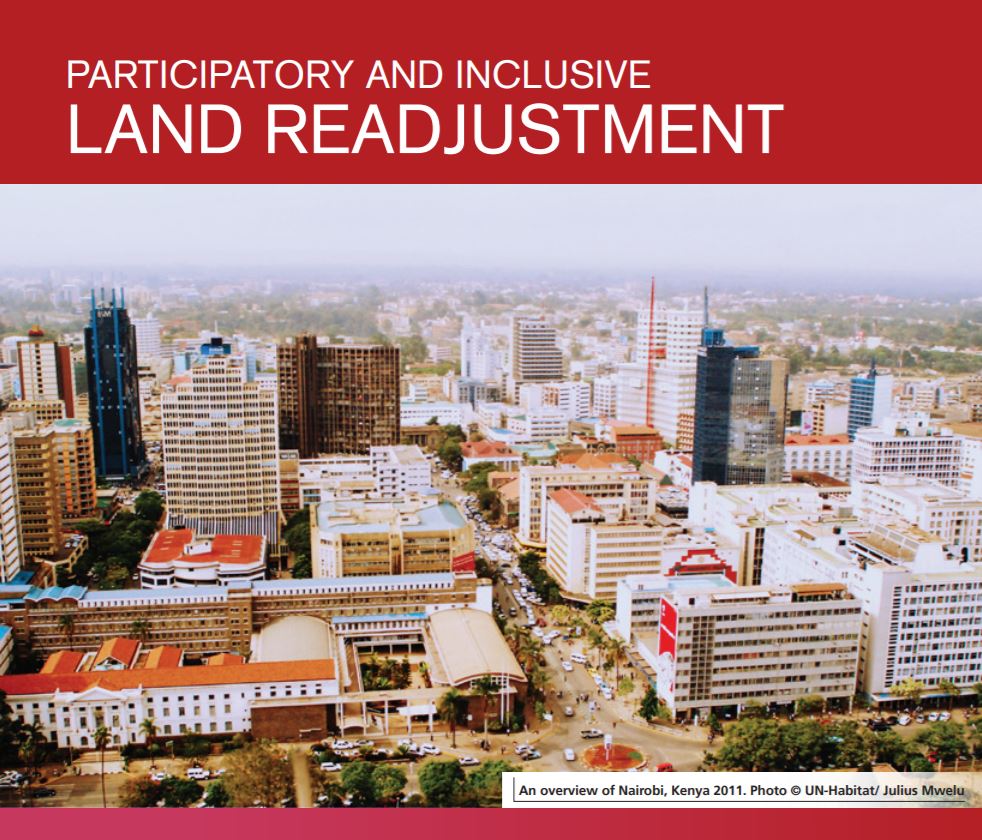Participatory and Inclusive Land Readjustment

Many towns and cities in developing countries are struggling to respond to current urbanisation rates and are thus challenged to provide adequate shelter and housing, services, infrastructure and safe public spaces.
These challenges have resulted in the further marginalisation of many urban dwellers, leading to high incidences of poverty, unhygienic living conditions and informal economies with limited opportunities for upward mobility. Women, children, youth and newly arrived migrants often bear the brunt of this spontaneous and disorganised urban expansion.
These capacity gaps often prevent governments from undertaking the necessary governance, legislation and land administration related reforms that might adapt existing institutional structures and regulatory frameworks to emerging urbanisation trends and, thus, to increase the supply of serviced land. To address this situation and contribute to the development of sustainable towns and cities, there is an urgent need for new and innovative tools.
UN-Habitat has proposed a new approach for land readjustment called PILaR – Participatory and Inclusive Land Readjustment. The approach addresses many of the challenges of conventional land readjustment. For example, the new approach aims to have all stakeholders at the core of its development processes and to deliver a sustainable and inclusive outcome. Participation and engagement thus lie at the heart of PILaR with a specific emphasis on engaging the poor and marginalised and of recognising particular vulnerabilities such as gender, age and youth.
PILaR will improve development outcomes in urban areas in the following ways:
- Improved land management and planning processes that promote the optimal use of land,
- Improved infrastructure and public space provision leading to better environmental management mechanisms,
- Adopting a participatory urban development process that recognises multiple communities and preserves and values local dynamics, engendering community ‘buy-in’,
- Improved institutional capacity for community engagement,
- Increasing the land value sharing options to help finance infrastructure and services,
- Providing options for the sharing of the burdens and benefits of development and thus improve public capacity to deliver infrastructure,
- Optimising vertical and horizontal developments to increase the supply of affordable serviced land, and
- Use of financing options and vertical development to promote connectivity and mixed use with an emphasis on pro-poor strategies, such as social housing, to create inclusive and sustainable towns and cities for the future.
Abstract based on source.


Comments